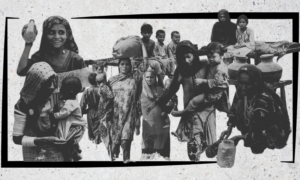The US embassy in Islamabad issued a fresh advisory this week, urging American citizens to reconsider travel plans to Pakistan, citing heightened threats of terrorism and escalating violence in certain regions of the country. This comes as Pakistan grapples with a surge in militant attacks, particularly in volatile areas like Balochistan and Khyber Pakhtunkhwa.
The advisory follows a series of high-profile attacks, including a coordinated assault last month in Balochistan where separatist militants killed over 50 people. These attacks targeted military camps, police stations, and critical infrastructure such as railways and highways.
Meanwhile, in Khyber-Pakhtunkhwa (K-P), religious extremist groups have intensified their operations, frequently ambushing security convoys, attacking checkpoints, and kidnapping officials.
In the warning, the US embassy specifically advised against travel to Balochistan and K-P, including the formerly Federally Administered Tribal Areas (FATA), due to persistent threats from terrorism.
The advisory also highlighted the dangers near the India-Pakistan border and the Line of Control, mentioning the potential for both terrorism and armed conflict in those regions.
The embassy noted that militants often strike without warning, targeting various public spaces such as transport hubs, markets, military installations, schools, hospitals, and tourist attractions.
Citizens were also warned to steer clear of protests, as Pakistani law requires official permits for demonstrations, and participation in unauthorised protests or posting content critical of the government on social media could result in detention.
“Pakistan’s security landscape remains unpredictable, sometimes shifting with little notice,” the advisory stated. It added that while major cities like Islamabad have more robust security measures in place, citizens should not rely solely on local authorities in the event of an emergency, especially in less secure areas.
For those still planning to visit Pakistan, the US embassy advised staying vigilant by monitoring local news, avoiding crowded places, and having evacuation plans in place that do not depend on US government support. Travellers were also urged to keep their travel documents updated and easily accessible.







